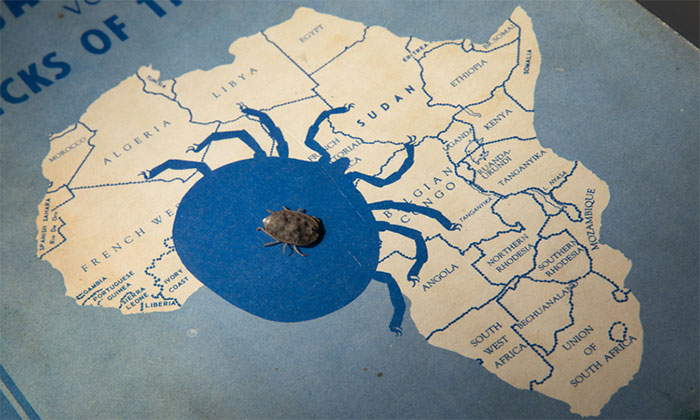The Argas brumpti tick can live for a very long time without food, and females can store sperm and reproduce four years after the males die.
A new study published in the journal Medical Entomology reveals that the Argas brumpti tick can live up to 27 years in a laboratory, including 8 years without food, setting a new record for this species, as reported by Newsweek on February 23. Julian Shepherd, an associate professor of biology at Binghamton University in New York, also discovered that female ticks can store sperm and reproduce four years after the last male in the group has died.

A species of tick known scientifically as Argas brumpti lived for 27 years in Julian Shepherd’s laboratory. (Photo: Jonathan Cohen)
Argas brumpti is a soft tick species found in southern and eastern Africa. Shepherd was given a colony of ticks collected from Kenya in 1976 and decided to study them in a stable laboratory environment.
The tick group consisted of 6 adult females, 4 adult males, and three Argas brumpti larvae. At that time, Shepherd could not have predicted that they would live for several more decades, setting an unprecedented record for the resilience of ticks.
“I have always been passionate about studying how organisms adapt to their environment. In this case, it was a drought-like environment, almost devoid of water for long periods, and they had to survive long phases without food before encountering a host,” Shepherd stated.
The tick group fed on mice and rabbits in the laboratory until Shepherd decided to stop providing these hosts. The male ticks continued to live for 4 years without food. The females survived for another 4 years, after which Shepherd began to feed them again. One of the original females reproduced, laying eggs even though the last male had died 4 years prior.
Shepherd noted that one possible explanation is that ticks can store sperm for extended periods. “Their remarkable longevity seems to be a record for any tick species. Late reproduction may indicate long-term sperm storage, which also appears to be a record among all tick species,” he said.
Like these ticks, other animals can also survive for extended periods without food, such as tardigrades. This tiny creature can live without food for up to 30 years. The olm, a cave-dwelling salamander, can survive without eating for a decade. Meanwhile, large crocodiles can go for a year without food.
The record-setting tick group is being transferred to scientists in South Africa for further testing. “Studying how organisms master such challenges can provide additional insights into how other creatures, including humans, cope with similar challenges,” Shepherd added.


















































